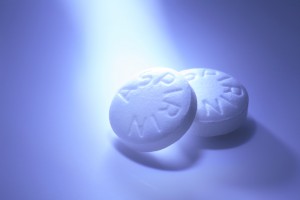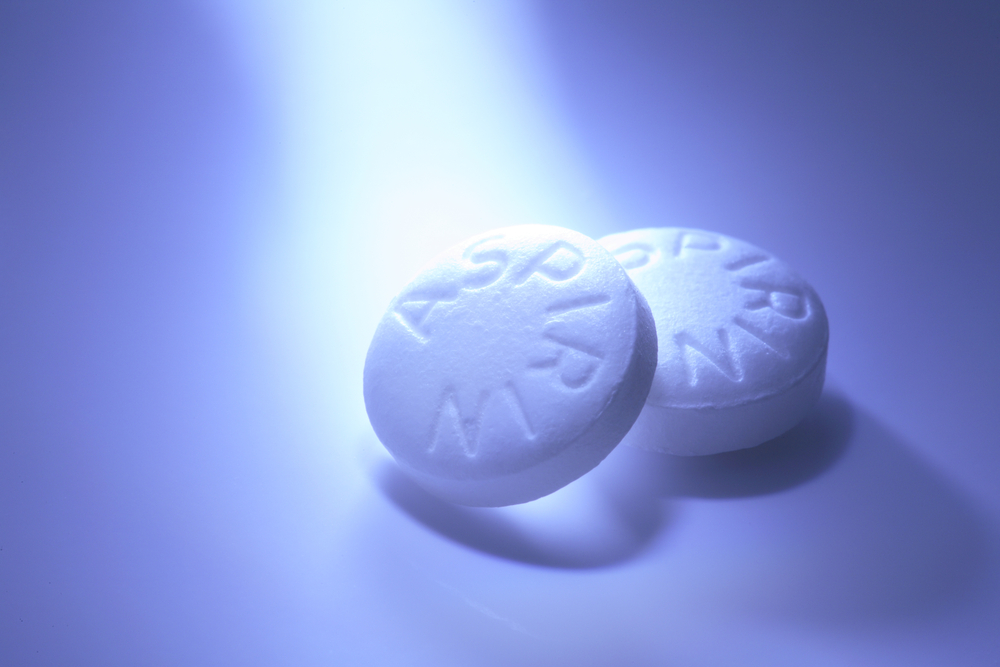 A new study assessing the effect of Aspirin in decreasing prostate cancer risk will be presented at the 13th Annual American Association for Cancer Research Frontiers in Cancer Prevention Research Conference, held in New Orleans, LA.
A new study assessing the effect of Aspirin in decreasing prostate cancer risk will be presented at the 13th Annual American Association for Cancer Research Frontiers in Cancer Prevention Research Conference, held in New Orleans, LA.
Dr. Adriana Vidal, an assistant professor of urology at Duke University in Durham, North Carolina, and colleagues have performed a clinical trial, called Reduce, sponsored by GlaxoSmithKline, to test if dutasteride reduces the risk of prostate cancer in 6,390 men without the disease. This drug, manufactured by GlaxoSmithKline, inhibits the conversion of testosterone to dihydrotestosterone, and has been used for treating benign prostatic hyperplasia (BPH), also known as “enlarged prostate.”
Dr. Vidal and colleagues decided to address how the treatment with aspirin could affect the probability of men being diagnosed with prostate cancer. This hypothesis was based on previous observation that anti-inflammatory medications, such as aspirin, could decrease the levels of prostate-specific antigen (PSA), a protein that is produced by the prostate gland that upon increased levels is considered a biomarker for prostate cancer.
Three groups of men were either administered aspirin, a non-steroidal anti-inflammatory drug (NSAID), both, or neither. During the four-year study, the groups treated with aspirin and/or NSAIDs were associated with a 13% lower probability of developing prostate cancer. Importantly, the over-the-counter (OTC) medicines were associated to a 17% reduction in the probability of developing aggressive prostate cancer.
The researchers think that the positive effect observed for aspirin could be due to its action on two enzymes, called COX-1 and COX-2. “These enzymes participate in the synthesis of inflammatory prostaglandins that can promote cell proliferation,” Dr. Vidal said to Yahoo Health. “This can eventually lead to cancer. Aspirin and NSAIDs inhibit these enzymes,” he added.
Previous studies have already suggested a positive association between aspirin and prevention of other types of cancer. A study published on The Lancet in 2010, found that taking a minimum of 75 milligrams of aspirin per day, during five years, significantly decreased the probability of developing colon cancer. “It’s quite promising, particularly for colon cancer. Maybe for some types of breast cancer,” Dr. Vidal explained. “However, for prostate cancer, the reduction in risk is not huge — and aspirin and other NSAIDs may have some potential side effects, like GI bleeding.”
“We didn’t have data on dose or frequency, so that’s a limitation of the study. However, past studies suggest that taking an aspirin tablet twice a week for at least four years is the minimum intake associated with reduced prostate cancer risk,” Dr. Vidal concluded.
The research team suggested that if you are in a group of high risk of developing prostate cancer you should talk with your doctor in the possibility of adding aspirin in your medication regimen. According to the American Cancer Society the risk factors are age (frequency increases rapidly after age 50), race and ethnicity (prostate cancer is more common in African-American men), family history, obesity, and smoking.
This risk calculator can be used to estimate the likelihood of developing prostate cancer.

